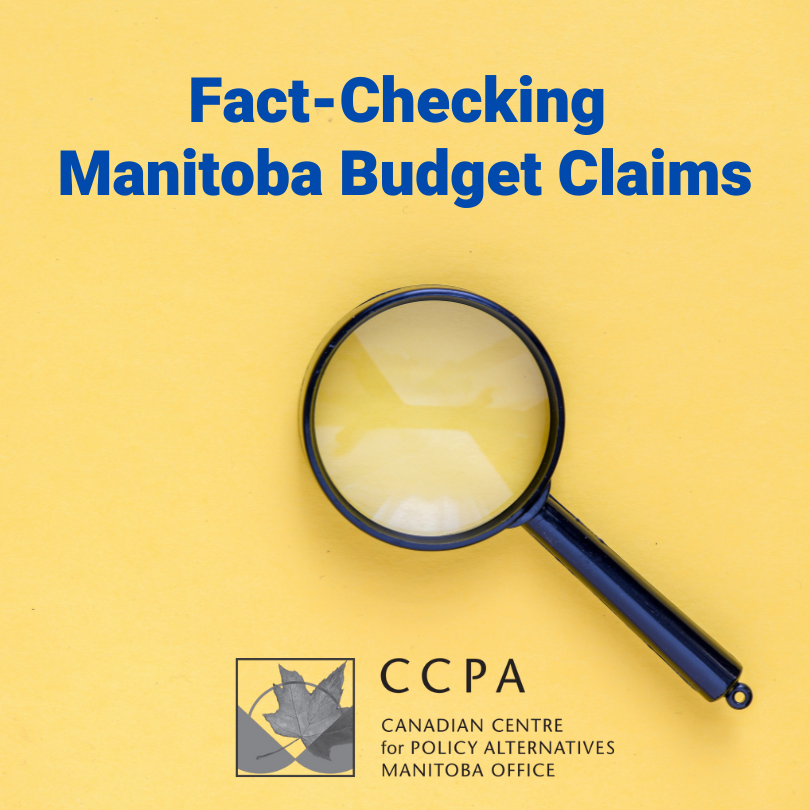
- Claim: “Budget 2023 removes 47,400 low-income Manitobans from the tax rolls and saves the average family $1,000”
Impact: More of the Basic Personal Amount tax change money will go to Manitoba’s richest 10% than the bottom 50% combined.
The poorest 10% (100,100 Manitobans) get no benefit from this change as they don’t make enough to be on the tax rolls currently.
The second-poorest 10% (990,900 Manitobans) saves only $74 by the increase in the Basic Personal Amount.
The richest 10% save $1,322 on average from the increase in the Basic Personal Amount and the increases to the tax brackets. The increased spending due to these tax cuts could drive up prices and inflation.
Source: More of Budget 2023 tax changes go to Manitoba’s richest 10% than the bottom 50% combined
2. Claim: “Reducing taxes will slow out-migration from Manitoba”
Fact: The decision to move away is impacted by many factors, such as job availability, housing prices, tuition costs, family, friends, and community.
Research from US states shows that the effects of taxes on migration are, at most, small.
Manitoba has long had a problem with out-migration, particularly to larger urban centres such as Calgary, Toronto and Vancouver.
Considering those who immigrated to Manitoba and those who left, Manitoba had a net gain of of Manitoba’s population of 9,779 in 2022.
Tax cuts that impact the province’s ability to deliver quality health care, education, housing, infrastructure and transit make Maniotba a less desirable place for people and businesses to locate.
Sources: Tax Flight as a Myth; Tax-Related Migration is Grossly Exaggerated; Manitoba Must Address Out-Migration of Youth; Winnipeg Real Estate Board Immigration Facts
3. Claim: Cutting taxes is “fiscally smart.”
Fact: Manitoba’s tax cuts are fiscally unsustainable.
The Parliamentary Budget Officer finds that Manitoba’s tax cuts and program spending is unsustainable, and the net debt to GDP ratio could rise substantially as a result.
Since forming the government, the PCs have cut a cumulative $750 million from annual revenues: PST ($300M), personal tax cuts ($441M), business tax cuts ($34 M); Budget 2023 reduces annual revenue an additional to $949 million in tax cuts, ($326 million Basic Personal Amount, $160 million income tax thresholds, $453 million on education property tax rebates).
From 1999 – 2016, the NDP government cut revenues cumulatively on income tax and property tax reductions – see p. A20 of the Economic and Fiscal Outlook 2016.
Manitoba’s revenue to GDP is on the decline, impacting the ability of the Manitoba government to provide quality healthcare, education and other public services we rely upon.
The use of tax cuts and rebates is a relatively regressive approach to addressing inequities compared to investing in universal public services and more targeted income supports.
Sources: Manitoba Government Annual Reports and Public Accounts 2006/07 – 2021/22; Fiscal Sustainability Report 2022, Parliamentary Budget Officer
4. Claim: “The Province is increasing funding for K- 12 schools by $100 million for 2023-24, representing an increase of 6.1 percent in operating funding”
Fact: Provincial funding in 2023 will not make up to past cuts to education.
The increase in 2023 does not make up for these past funding cuts. Provincial funding to public education funding was cut by $107 million between 2016 – 2021 and during this time did not fund for growth in the student population. The increase in 2023 does not make up for these past funding cuts.
The Education property tax rebate increases from 37.5% to 50% in 2023 – resulting in a loss of revenue for the MB government of $450 million in 2023. The Province has not yet created a plan to sustainably fund education and make up for the cost of education property tax rebates.
According to a recent Probe Research Poll, 58% of Manitobans want the province to keep the cheques and invest in public services like education instead.
Manitoba delayed the report of the Education Funding Review until 2024. There is no plan in place to sustainably fund education.
Sources: Stop the Cuts, Invest in Education Instead; Manitoba FRAME Reports 2016/17 – 2020/21
5. Claim: “Manitoba is the only province with a Health and Post Secondary Education Levy, and this is a barrier to business competition and attracting new businesses. ”
Fact: Five provinces have a payroll tax like the Health and Post Secondary Education Levy. Manitoba is the only province without any small business tax.
The provinces with a payroll tax are British Columbia, Manitoba, Ontario, Quebec and Newfoundland and Labrador.
Manitoba is the only province to have no tax for small businesses that make profits of less than $500,000.
Budget 2023 increases the floor at which employers pay the Health and Post Secondary Education Levy. These tax cuts in Budget 2023 will cost $2.3 million, and those in 2024 will cost $35 million.
Paying taxes is the cost of business and pays for a healthy, educated workforce.
Sources: Budget 2023; Provincial Payroll Tax
Compiled by CCPA Manitoba staff and Research Associates.


